Offices of the Future
AI-powered personal assistants, holographic Zoom calls, and desks controlled by sensors for optimal height are anticipated elements of future offices. According to Nick Riesel from FreeOfficeFinder.com, “Walking into an office in 2050 will be like stepping into a science fiction movie where AI is not only expected to be carrying out day-to-day tasks, it will also be responsible for decision-making.” The researchers combine office space expertise with AI tools to envision a futuristic white-collar workplace in 2050. Emerging technologies such as brain-computer interfaces and focused ultrasound for cognitive enhancement are on the horizon. Beyond technology, offices are expected to prioritize wellbeing through biophilic designs, incorporating plants, water features, and natural lighting to enhance mood, reduce stress, and boost productivity.
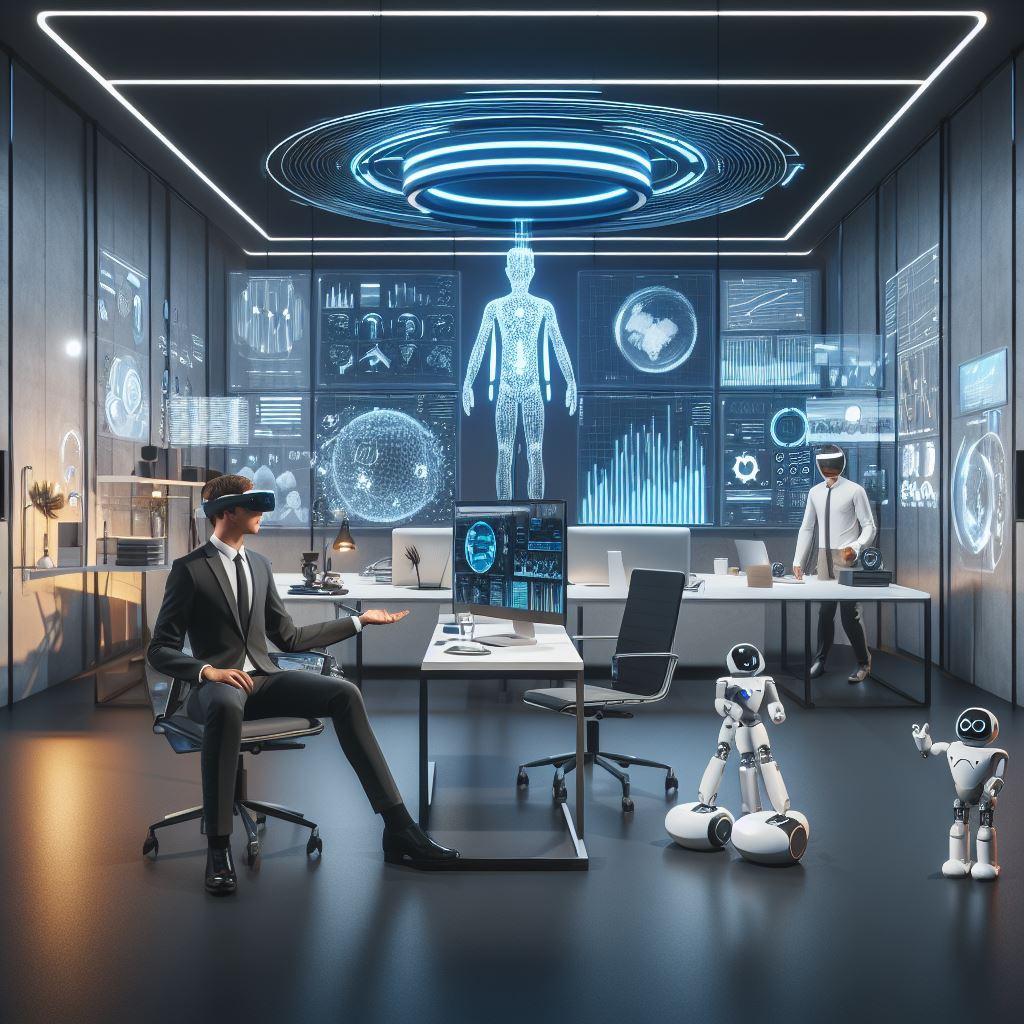
Technological Leadership and Personalized AI Assistants
“I would expect to see big tech firms like Apple, Google, and Facebook pave the way for others to follow,” says Nick Riesel of FreeOfficeFinder.com. Major tech companies are expected to lead the way in adopting futuristic office trends. There’s anticipation for a future where each employee possesses their personalized AI assistant, capable of managing schedules, automating routine tasks, and providing real-time data analysis and decision support. Envisioned smart, adaptive work environments equipped with sensors and AI that adjust lighting, temperature, and desk height based on individual preferences and optimal working conditions.
Advanced holographic technology might also enable realistic 3D projections for more effective remote meetings and collaborations. Commuting is foreseen to lead to sustainable, energy self-sufficient buildings utilizing solar panels, wind turbines, kinetic energy from human movement, and robust recycling and waste management systems.
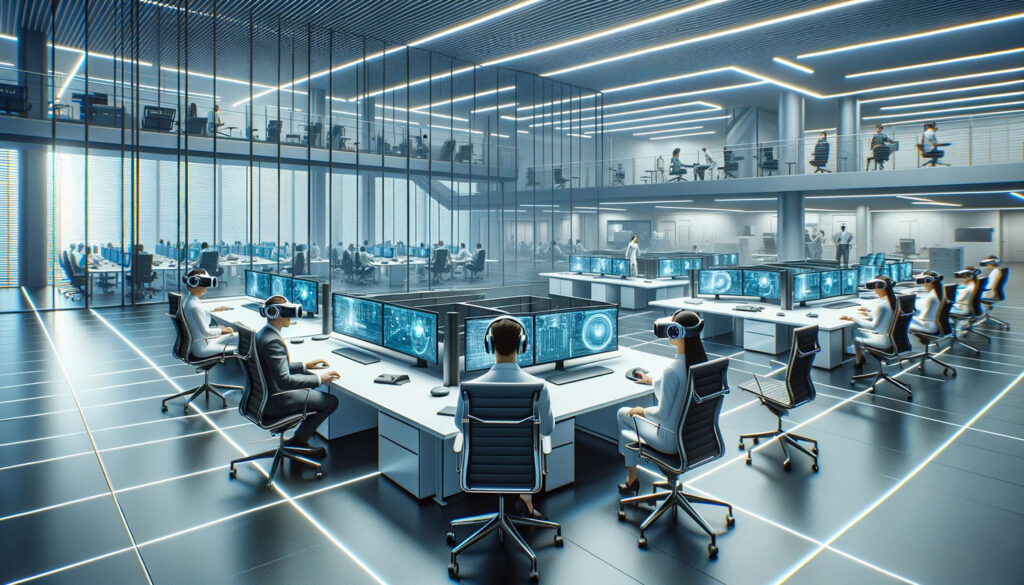
Quantum Computing and Augmented Reality
In the future, offices are poised to integrate Quantum Computing, tapping into its power for intricate problem-solving. This integration holds the potential for groundbreaking advancements in areas such as logistics, finance, and engineering. Another forthcoming development is Augmented Reality (AR) Workstations, where AR overlays digital information onto the physical world, reshaping how employees engage with data and digital tools.
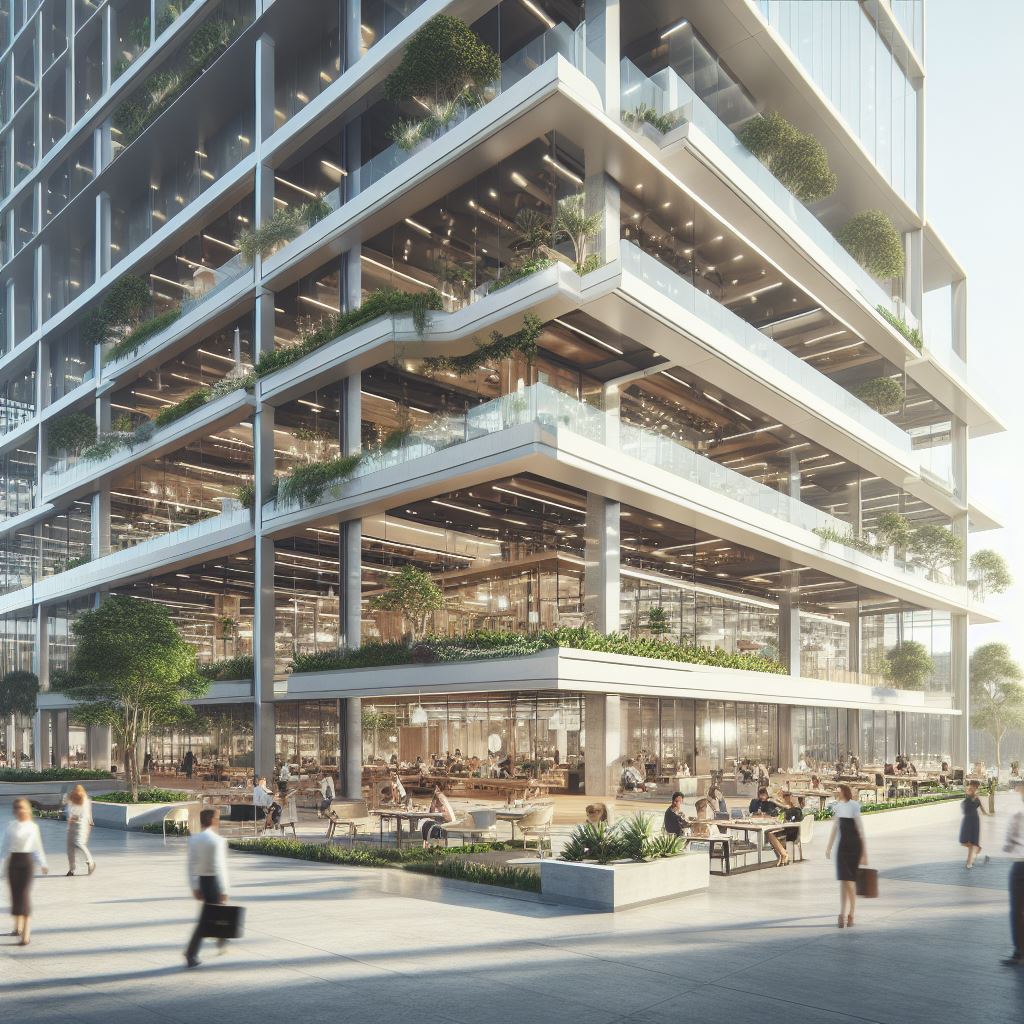
Furthermore, Genetic and Biometric Customization might become prevalent, leveraging genetic and biometric data to tailor the work environment to individual health and wellness needs. This includes ergonomic furniture and optimized work schedules. There’s even speculation about workplaces transitioning from physical spaces to fully immersive virtual reality environments, enabling employees to work globally while feeling physically present in the same room. Nick Riesel emphasizes, “Even now, we are on the cusp of a workplace revolution with the emergence of AI, so the future could be here sooner rather than later.”



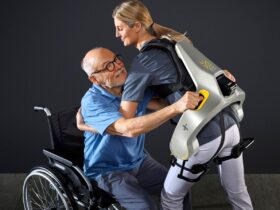




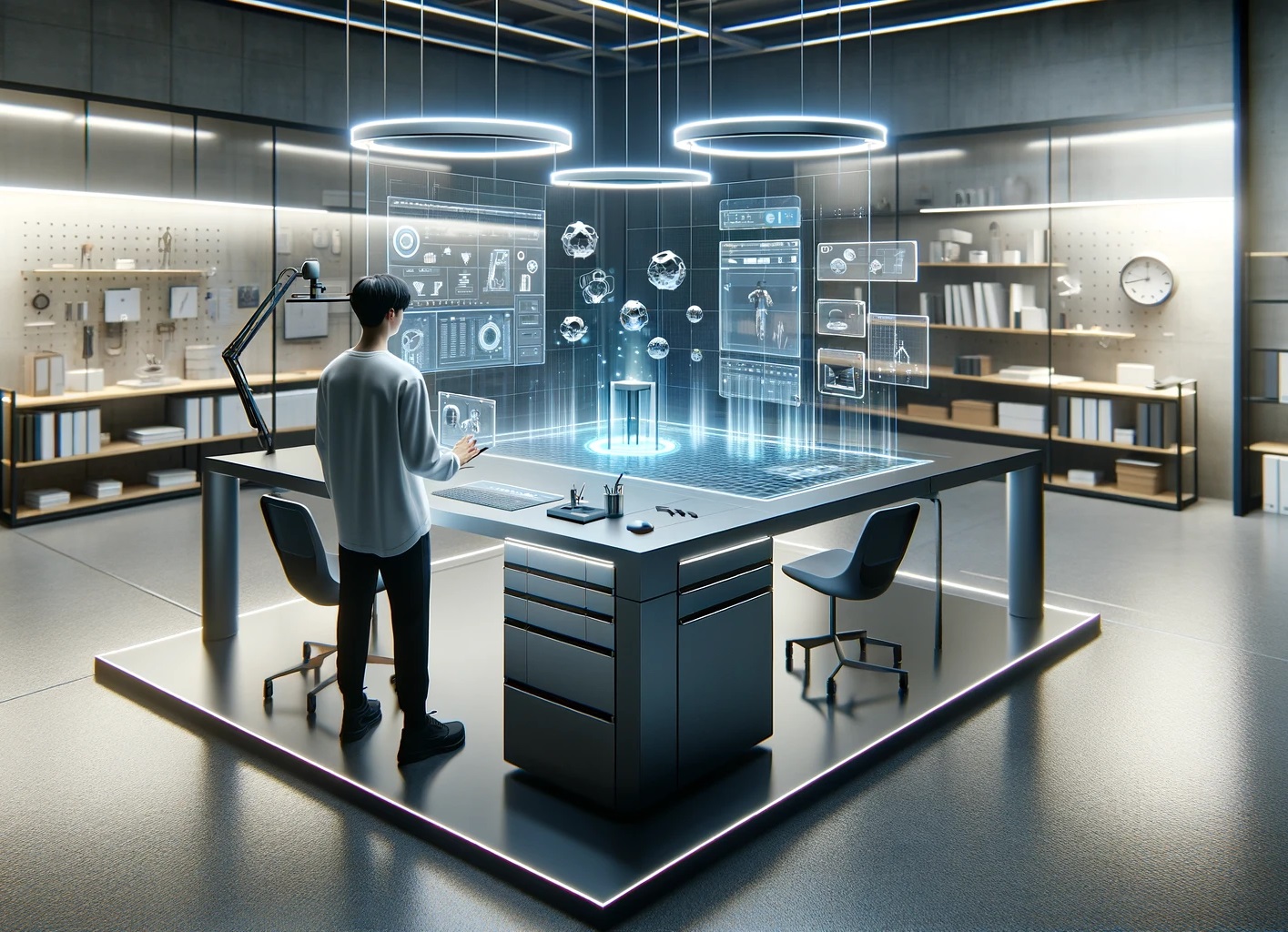






Got a Questions?
Find us on Socials or Contact us and we’ll get back to you as soon as possible.